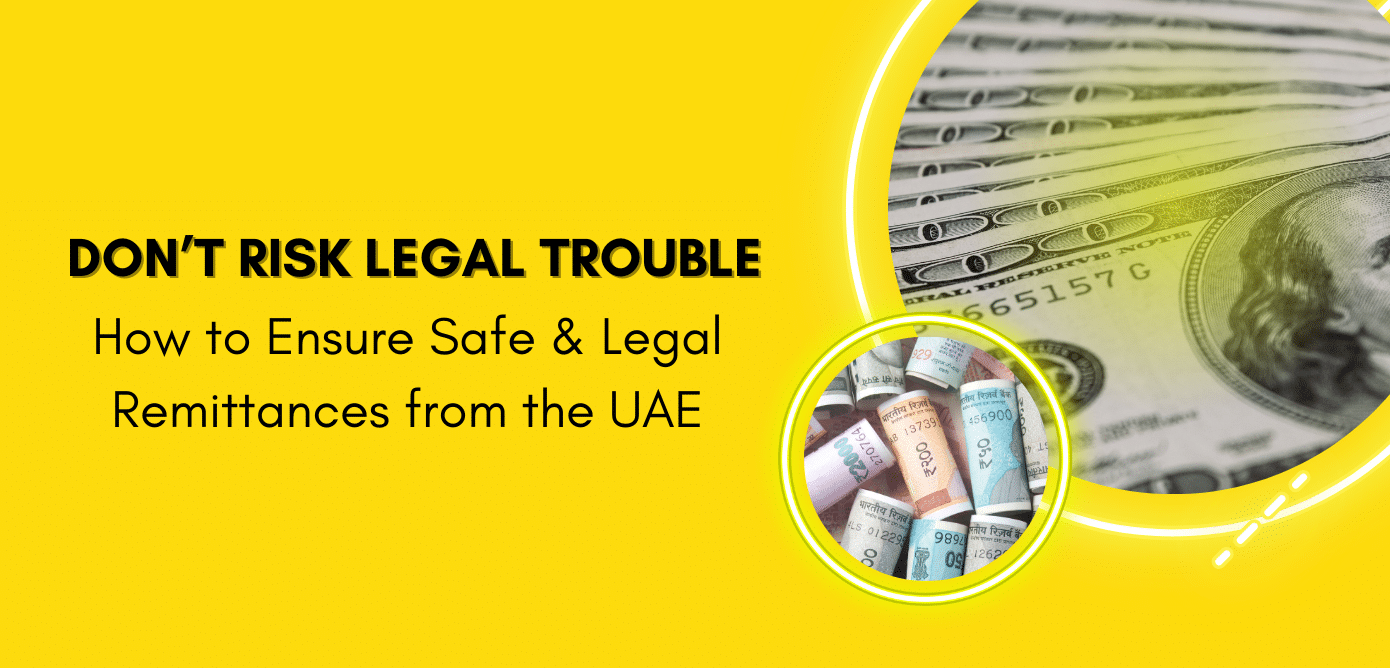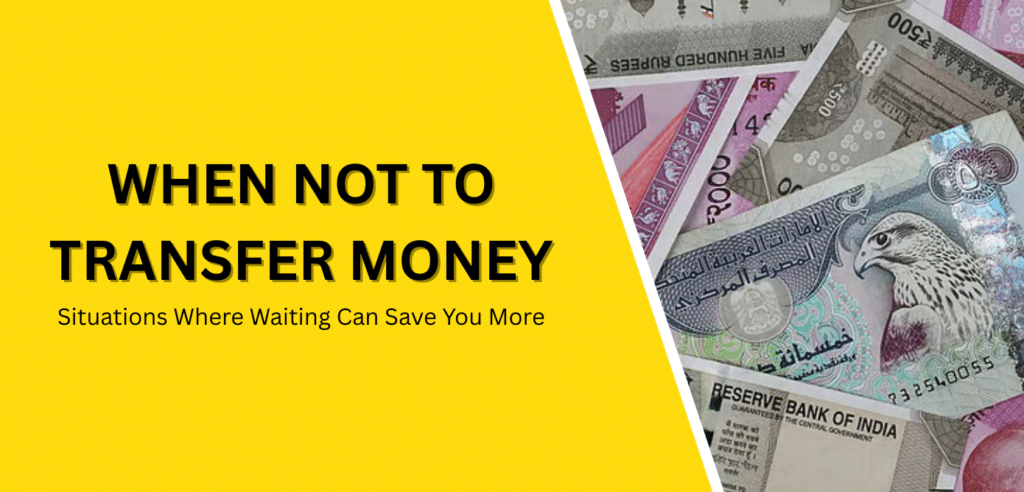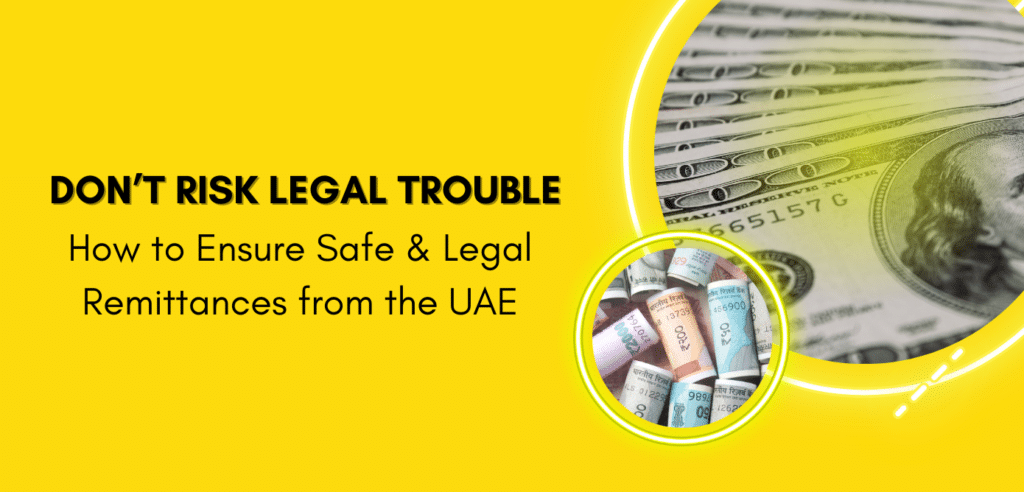Stay Safe with Remittance Services Dubai: Ensure Legal Transfers from the UAE
LC Editorial (LC Editorial)
Worried your remittance could land you in legal trouble? With the right steps—choosing licensed providers, following money transfer rules, and staying AML-compliant—you can legally send money from the UAE without stress and keep your family secure.
Why Sending Money the Right Way Matters
Sending money abroad from the UAE is something millions of residents do every month to support families, pay bills, or make investments. But here’s the catch—if you don’t follow the money transfer rules in the UAE, you could end up facing legal trouble.
The solution is simple: always choose remittance services Dubai that are safe, compliant, and transparent. This ensures your hard-earned money reaches loved ones securely—without penalties or risk.
Understanding Legal Money Transfers in the UAE
The UAE has one of the most advanced financial systems in the world. With a large expatriate population, remittances play a huge role in the economy. To protect both senders and receivers, the government has put strict regulations in place.
When you send money legally from the UAE, you’re not just following the law—you’re also protecting yourself from scams, fraud, and financial loss. Licensed money transfer companies and banks use proper AML compliance UAE checks, which means every transfer through remittance services Dubai is monitored for safety and legitimacy.
Risks of Illegal or Unauthorised Transfers
Using unregistered agents or informal channels may sound cheap or convenient, but it can create big problems:
- Legal Penalties – Transferring money through unlicensed services can lead to fines or even jail time.
- Loss of Funds – If the agent disappears, there’s no guarantee you’ll get your money back.
- Fraud Risk – Illegal channels are often linked with scams and money laundering.
- Reputation Damage – Banks may block your account if suspicious transfers are detected.
This is why authorities encourage using safe remittance services Dubai approved by the Central Bank.
Key UAE Money Transfer Rules You Must Know
To stay compliant, here are the most important money transfer rules UAE residents should follow:
- Use licensed exchange houses or banks – Only registered providers can legally transfer funds.
- Provide valid ID documents – Emirates ID, passport, or visa details are required.
- Declare large transactions – Any transfer above the legal threshold must be reported.
- Avoid splitting transactions – Breaking large sums into smaller transfers to avoid detection is illegal.
- Keep transaction records – Always save receipts and confirmations for proof.
Following these rules ensures your transfers remain both safe and legal while using remittance services Dubai.
How AML Compliance Protects You
AML compliance UAE (Anti-Money Laundering) isn’t just about regulations—it’s about protecting everyday users like you. Here’s how:
Action | Why it matters for legal compliance |
Use licensed providers | Ensures AML / KYC protocols are followed |
Complete full KYC & CDD | Required by CBUAE rules |
Declare purpose & source of funds | Avoids red flags in monitoring |
Avoid sending money to strangers | Prevents fraud and legal liability |
Understand fees & VAT | Avoids cost surprises |
Keep your documentation | Protection if issues arise |
By choosing AML-compliant platforms and remittance services Dubai, you ensure your money is not linked to illegal activities.
Safe Money Transfer UAE – Best Practices
To keep your remittances risk-free, follow these practical tips and compare money transfer services to find secure and cost-effective options:
- Choose reliable providers – Go for banks or trusted platforms offering remittance services Dubai.
- Compare costs – The best way to send money abroad isn’t always the cheapest—look for a balance of low fees and high security.
- Check exchange rates – Small differences can make a big impact on the amount your family receives.
- Avoid cash handovers – Always transfer through official banking or digital channels.
- Stay informed – Keep track of new regulations issued by the UAE Central Bank.
Popular Safe Transfer Options in the UAE
Some commonly used and safe remittance services Dubai channels include:
- Banks – Secure, but sometimes higher fees.
- Exchange Houses – Widely used, fast, and Central Bank approved.
- Digital Platforms – Mobile apps offering online remittance services in Dubai with convenience.
- Global Operators – Services like Western Union or MoneyGram.
For example, if you want to send money to Kenya from the UAE, you can use both banks and licensed digital services that provide direct transfers to local accounts or mobile wallets.
Benefits of Sending Money Legally
Sending money legally from the UAE offers peace of mind and long-term benefits:
- Security – Your money is always traceable.
- Trust – Banks and providers follow international compliance rules.
- Speed – Official transfers are faster and more reliable.
- Global Reach – Licensed platforms allow you to send money to almost any country using remittance services Dubai.
Secure Every Transfer with UAE Money Transfer Rules
Sending money abroad is part of daily life for many UAE residents—but doing it the wrong way can cost you heavily. The safest path is clear: follow money transfer rules UAE, choose licensed providers, and ensure AML compliance UAE every time. Recent fintech rules now make it easier and safer for expats to remit money legally.
This way, your hard-earned money reaches its destination safely—without legal headaches.
Key Takeaways
- Always use legal money transfer UAE services approved by the Central Bank.
- Avoid informal channels to prevent fraud and penalties.
- Understand AML compliance UAE for safe and transparent transfers.
- The best way to send money abroad is by balancing cost, speed, and security.
- Licensed providers make it easy to send money legally from the UAE to countries like India, Kenya, or the Philippines using remittance services Dubai.
Frequently Asked Questions
- Why is it risky to use unlicensed money transfer services in the UAE?
Unlicensed services are illegal, unsafe, and can lead to fines, account freezes, or total loss of money. - How can I ensure I’m sending money legally from the UAE?
Use only Central Bank-licensed banks, exchange houses, or verified digital platforms with proper receipts. - What documents are required for a legal money transfer UAE?
You’ll need a valid Emirates ID, passport, or visa copy, depending on the provider’s requirements. - Is online money transfer in Dubai safe?
Yes—if you use regulated apps and platforms that follow AML compliance UAE rules, including remittance services Dubai. - What’s the best way to send money to Kenya from the UAE?
You can transfer through licensed exchange houses, banks, or secure online platforms with fast payout options, such as remittance services Dubai.

Transparency

Deals
and Discounts

Track real-time exchange rates

Reach the right audience on Leocompare
Promote your service to users seeking the best money transfer options







